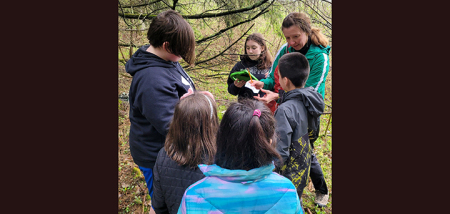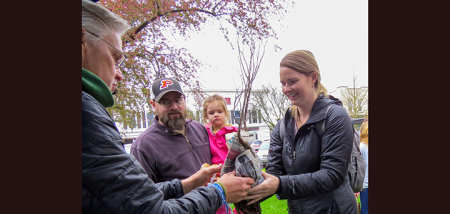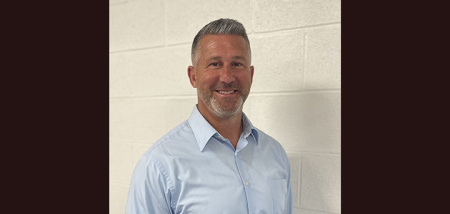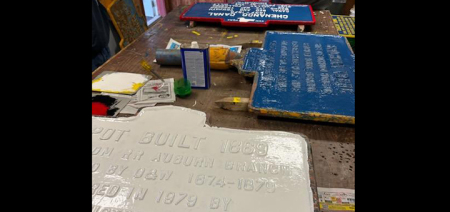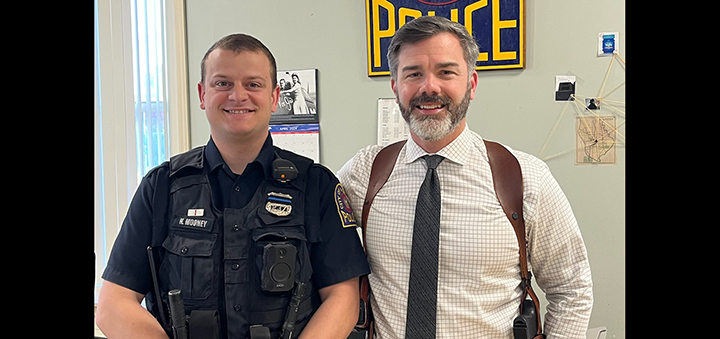Better Safe (and Educated) Than Sorry
Published:
July 22nd, 2013
By:
Ashley Babbitt
It’s a little after 1 a.m., you’ve just finished your grocery shopping – chicken, eggs, pasta, broccoli, chocolate chips, coffee, a can or two of gross, soon-to-be watery soup, a gallon of milk, and some Ben and Jerry’s. You throw it all in your car – the passenger side floor works well enough, you’re not headed far, buckle up, and start the ignition. After pulling out of the Price Chopper parking lot, you take a left to head home and realize you forgot your tank is on E, and has been for days. You should probably get gas, but there isn’t much open right now; you opt to head north out of the city to the 24 hour gas station that way.
Since it is Saturday, there are a few people downtown as you pass through, but not too many. There aren’t a great many cars either – and that’s to be expected. You arrive at the gas station, pre-pay and put seven in the tank – there’s no point in filling it right now, you can do that tomorrow. Hop back in the car, turn up the volume – it just so happens that ‘shuffle’ has it on Bob Marley’s “Get Up, Stand Up” – and head for home. You’re, of course, singing along, have the windows down, and are drinking a bottle of warm water because you’ve left the case of it in your car in the ridiculous heat. You’re cruising along, nearing home, when you spot headlights behind you. You haven’t passed another vehicle for a few minutes, so someone was eventually to be expected. After another glance in your rear-view, you realize the lights have gotten closer pretty quickly, but it’s late and a lot of people travel a little faster than the posted limit.
Then there it is ... the headlights that have been following behind the past couple minutes turn into the dreaded blue and red lights of a vehicle operated by a police officer. Cue the sweaty palms and almost guaranteed expletives. But you swear you haven’t done anything wrong ... you weren’t speeding, didn’t hit anything, weren’t swerving like a maniac ... what could be the issue? Your “late-night grocery shopping success” bubble has been popped. With shaking hands, an increased blood pressure and a frantic mind, you turn on your right traffic signal and pull to the side.
Now, by no means take any of what follows as legal advice. I have no formal legal training whatsoever. It’s just that in some things you are explicitly taught - others, not so much. I simply find it unfortunate that many don’t learn their rights until it’s too late. It’s disheartening to see young folks (actually, older people too) who aren’t aware of the rights they have. Also, don’t assume this is because of poor interactions I’ve personally had during traffic stops; this is not the case, it is merely to help out others who may not know the deal. I will skew the above story for purposes of examples, but the basic tenets will remain.
First come the basics. The stuff your insurance company says to do, and the things you’re taught in driver’s ed. Slowly pull to the right – far enough over so that the police employee is safe from oncoming traffic when he or she is chatting with you throughout the stop, roll your window down, keep your hands on the steering wheel. Some people will instruct you to have your traveling papers (license and registration) ready to show, others will instruct you to wait until you are asked to present it.
Now, in New York there is legislation prohibiting the use of a mobile device while driving. I’d suggest to have your phone charged and readily available so that once you have safely pulled over you can quickly activate the video function to record the interaction. If you can’t get to that quick enough, have “voice recorder” on the home screen to at least capture the audio. You can inform the police employee you are recording the ensuing conversation. It’s also beneficial if you have a passenger who can either record the interaction or remember it – although video is undeniable.
Keep your hand’s in view of the officer at all times – it is imperative he or she know that you present no physical danger to his or her life.
Typically, you might be asked a few questions including: “Where are you headed?” “Do you know why I stopped you tonight?” “Do you know how fast you were going?” “Did you have anything to drink tonight?”
Now in the case of the previously laid out, innocent enough story, the police employee asks you where you’re going and where you’re coming from. They seem like harmless questions, but know that you’re not required to answer them. It’s wise to only answer questions particularly pertaining to the traffic stop. For example, “Did you know your brake light is blown?” is alright to answer – especially since in the situation above, you weren’t aware. “No, sir, I did not.” Easy ... wait for your fix-it ticket, say nothing else about anything else, and get out of there as soon as you’re free to go. The purpose of your travel, intended destination ... those are things used to try to get additional information from you – information you do not need to blatantly spew out because you’re nervous. I have been told that during the time police employees stay behind after you pull away from a traffic stop they are writing down everything you said during their “harmless” questioning, in case you take the ticket to court and they have to appear. It’s best to say less.
Let’s switch up the story and presume now that the police employee, while shining his flashlight into your vehicle – it is now close to 2 a.m., after all – believes your eyes are red and bloodshot. Up until this point you have answered his questions politely and complied with his orders. “Do you have any guns, drugs, or large amounts of cash in your car?” Okay, if you haven’t yet gotten the hint by this point, hopefully you get it now. This person is out to issue something other than a traffic ticket. Respond to questions with a question. “Can I call my lawyer now?” is a pretty fantastic one. Police employees may lie and deceive ... they are allowed to. “Things will be easier on you if you just tell me everything.” Wrong. Don’t do that. Politely, but firmly inform him that you will not take part in any more conversation until you have your attorney.
I don’t care if you are guilty as guilty can be, or if your eyes are red because you’re so scared of law enforcement that you’re holding back tears. Do not consent to a search of your vehicle.
To be clear, I’m not saying these things so that criminals can “get away” with things ... I just think it is important for people to realize when they interact with law enforcement they’re pretty much shooting themselves in the foot. Don’t offer information, ask for a lawyer. Also, don’t look silly – carry an attorney’s number in your wallet or purse. Some even will issue you a business card with specific information notifying the police employee you are invoking your fifth amendment right and will not speak without counsel.
If you’re asked to exit your vehicle, roll your window up, calmly exit, close your door, and lock all doors with the button on your key chain. Again, invoke your right to counsel.
The fourth amendment reads, “The right of the people to be secure in their persons, houses, papers, and effects, against unreasonable searches and seizures, shall not be violated, and no Warrants shall issue, but upon probable cause, supported by Oath or affirmation, and particularly describing the place to be searched, and the persons or things to be seized.”
Basically, you cannot be searched unless there is a warrant – written permission from a court of law allowing a police employee to search a specific person or property because there is probable cause a certain crime has been committed. There are exceptions to this – when a warrant is not required. Learn these yourself (although the first one is pretty cut-and-dry): consent, the plain view doctrine, search incident to arrest, and exigent circumstances.
I understand when getting pulled over tensions run high; you’re probably pretty disappointed in yourself, and it’s a big adrenaline rush. It’s best not to get snarky, even if the individual on the other side isn’t the friendliest. I always figured it’s best to be nice in most situations.
However, I implore you ... even if you have done absolutely nothing wrong, keeping your mouth shut is by far the best avenue. Sure, answer the basics if you’d like, but under no circumstances should you provide any other information. Remember, it’s not like you’ve been pulled over because you’re being issued a citizen of the year award and they’d like to get to know you better. Come on, now.
You have a place to be, the employee has a job to do. If it’s a ticket, take it and take it all the way to court. If something else ensues from the stop, absolutely invoke your right to counsel right away. Don’t let any smooth talking lead to consenting to a search unbeknownst to you that he asked and you complied.
Please don’t disrespect the law enforcement individual, that is just not polite. Hopefully, that favor is returned.
While I could go on for hours on this issue, I’d suggest you figure these things out on your own – by looking some things up. Please don’t wait and find out the hard way.
As for me, it’s a little after 1 a.m., and I’m out of Ben and Jerry’s ...
Follow me on Twitter
...@evesunashley
Author: Ashley Babbitt - More From This Author
Comments
